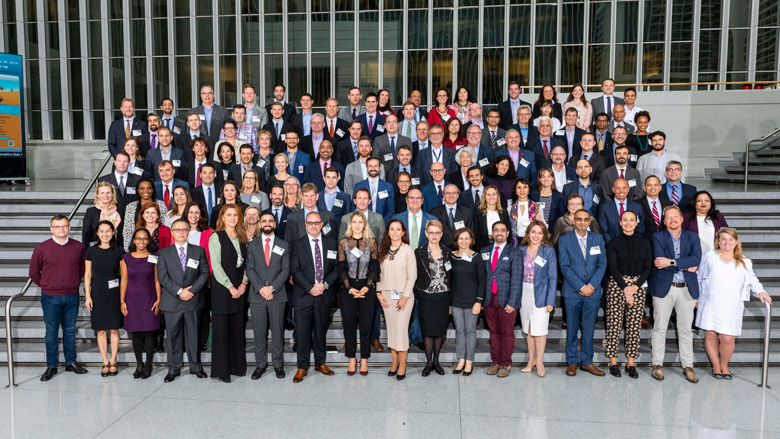On the morning of October 30, forty-five participants of the World Bank Group Business Opportunities Fair were busy preparing their two-minute pitches. Within this short amount of time, each of these 45 participants had to talk about their core competencies and innovations and paint a picture of their ideal business partner.
This participant-led activity was only one of the many interactive sessions featured during the business fair. This biennial event—a tradition that has endured since 2010—was jointly organized by the Private Sector Liaison Officer (PSLO) and the International Financial Institutions (IFI) Liaison Officer networks to support the Bank Group's efforts to engage with the private sector.
This year's event, which was focused on climate-smart energy, saw the participation of 125 private sector representatives. Companies represented at the event ran the gamut from small- and medium-size companies in developing countries to multinational corporations, and their areas of expertise included topics such as energy efficiency, micro-grid technologies, and renewable energies.
Manuela Ferro, the Bank's Operations Policy and Country Services (OPCS) Vice President, addressed the participants during the event, recognizing the role of the private sector in developing countries. "Incentivizing the right companies that can provide the best value for our client countries and help protect the environment and the communities we serve is critical to achieve our development objectives," remarked Ferro.
Over the course of two and a half days, participants not only learned about the different ways to do business with the Bank Group and the Bank Group’s energy priorities, they also had the opportunity to network with each other. Experts from other IFIs—including the Asian Development Bank, the European Bank for Reconstruction and Development, the Inter-American Development Bank, and the Millennium Challenge Corporation—were also there to talk about their respective energy priorities and offer ideas about how participants could work with their institutions.
As much as this event was designed to help the private sector understand how they could do business with the World Bank Group and other IFIs, this event was also meant to provide a space in which the private sector could provide their feedback and suggestions about how the Bank Group could make its interaction with the private sector more efficient and impactful.
Based on valuable feedback from the private sector at events such as the Business Opportunities Fair, the Bank has been able to significantly strengthen its procurement processes for works to ensure that the Bank’s Environmental and Social Framework’s objectives and requirements are properly reflected and cascaded to contractors as appropriate. Such enhanced requirements help create a level playing field by incentivizing good contractors with high standards to comply with requirements, which leads to better development outcomes.

